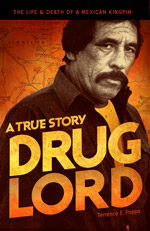(LOS ANGELE TIMES) — By Kate Linthicum
Carlos Dominguez was waiting at a traffic light in the northern Mexico border city of Nuevo Laredo with his son, his daughter-in-law and his grandchildren when men armed with knives flung open the car door.
Dominguez, a 77-year-old opinion columnist who had worked as a journalist for nearly four decades, was stabbed 21 times, according to Mexican authorities. They said he was attacked by at least three men who remain unidentified and at large.
The killing Saturday afternoon underscores the lethal risks faced by journalists in Mexico and the growing wave of violence gripping the nation.
Officials said they were investigating to determine whether the attack was connected to Dominguez’s work. He wrote frequently about politics, organized crime and occasionally their intersection — a perilous beat in a country that was second only to war-torn Syria in the number of journalists killed last year.
Eleven journalists were slain across Mexico in 2017, with no culprits arrested in most of those cases. Dozens of reporters have fled the country or gone into hiding.
In the Gulf Coast state of Tamaulipas, where Nuevo Laredo is located, 15 journalists have been killed since 2000, according to Mexico’s National Human Rights Commission. The commission, an independent government watchdog, has sent investigators to Nuevo Laredo to look into Saturday’s attack.
The organization Reporters Without Borders said it believed Dominguez was targeted because of his controversial columns.
[READ MORE ]

 January 16th, 2018
January 16th, 2018 
